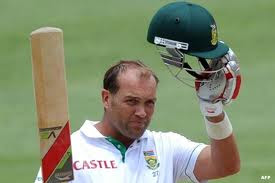As tight, as together on and off the beat, as the piano, double bass and drums of a superb jazz trio. The rink was their recording studio — big occasions, top-step-podium games, their jam sessions.
Krutov-Larionov-Makarov.
The legendary KLM Line.
And count Igor Larionov a big fan of the way coach Valeri Bragin has structured this Russian team at the IIHF world junior championship gunning for gold on Thursday night, the direction he has them pointed.
To enthall. To enrich. To entertain.
“I like it very much, the way they play,” critiques the former Detroit Red Wings star, long renowned a saavy, cerebral analyst of the sport.
“When you watch them the whole tournament — and I’ve watched a lot of games . . . they’ve brought back a fast, exciting game to Russian hockey. Even that game against Latvia, when they showed that kind of skill, that’s how we played on the KLM line.
“One-touch passes, skating through the neutral zone, slowing down the game a little bit. All different aspects.
“That’s what I thought. This is like the greatest hockey.
“It brings back memories of when I played.
“It shows this game can still take people off the seats.”
Larionov, in his guise as player agent, sits in the small, semi-circular stands overlooking Rink 3 at Winsport Arenas on the eve of Thursday’s gold medal game between Russia and Sweden. He’s watching two of his clients, the projected No. 1 pick in this year’s NHL dntry draft Nail Yakupov and defenceman Artyom Sergeyev, prepare for the most nerve-jangling night of their young lives.
The Russians are coming off back-to-back energy-sappers. Tight, emotional, taxing victories against their two fiercest historical rivals, the Czechs and Canadians.
In the first, a quarter-final, they needed overtime to squeeze through. In the second, only 24 hours later, they needed to withstand a typically relentless, rabid Canadian third-period charge from five goals down, hanging on grimly at the end like a cat stuck to the living-room curtains.
Sure, 17-to-19-year-olds are brimming with virtually inexhaustible energy, enough to light Times Square for a century of New Year’s Eve’s to come, but mightn’t such expenditure of resources in such a concentrated time frame provide Sweden a slight edge in the final?
“It’s possible,” conceded Bragin. “I think the Swedes will be more fresh.
“We’ll see who’ll be ready (Thursday). We’ll check the physical condition and then we’ll see how we’re going to play. The most important part will be to not sleep during the first period and be ready for the game from the beginning.”
In terms of psychological advantage, Sweden, remember, burrowed back from a 3-0 deficit to beat the Russians in the final game of the round robin and earn a bye into the semifinals.
“I think we’ll take a lesson from this game,” said Bragin. “I think the Swedes are like us. They have great motivation because they don’t win world juniors for something like 30 years.
“But in a final the chances are always 50-50. They can desire. We can desire. The game will show who’s strongest.”
Despite their draining past 72 hours, the Russians have plenty of reasons to be confident. Captain Evgeny Kuznetsov tops the tournament scoring chart with 13 points. Nikita Gusev and Yakupov aren’t far behind at nine apiece.
Seventeen-year-old goaltender Andrei Vasilevski — utterly brilliant for 40 minutes against the Canadians on Tuesday — has arguably been the best at his position here, a 2.01 goals-against-average and eyebrow-arching .953 save percentage. His draft stock has gone through the roof of the Scotiabank Saddledome at this tournament.
Fatigue, says Larionov, won’t be a Russian issue.
“You’re 17, 18 years old, playing for your country in front of a beautiful crowd (Tuesday) and the day before. You have to come and show your best. They played a good game (against Canada), expect for a couple mistake at the end. But you expect that. It’s youth hockey.”
What fascinates Igor Larionov, what fires his hope and imagination, is fast, skilled, compelling hockey. The style of game — Russia being the best example here — that enthralls old fans, the ones who remember the magic of he and his KLM linemates, and makes new ones.
“That’s who we play the game for. The trap . . . It used to be dump-and-chase, now it’s chip-and-chase. It’s not a favourite of mine. Yes, you’ve gotta play some defence but at the same time you’ve got encourage the skill.
“(We need) patience of the coaches with these young men — doesn’t matter, Russians, Canadians, Swedes, Finns — to use all their strengths to bring the game to the next level.”
Now, after the mountain of hype and 10 days of competition, there is nothing beyond one game, two nations.
A person would be hard pressed in pinpointing one player who’s been involved in more high-stakes clashes over a career than Igor Larionov. His countrymen, he advises, must put the exhilaration of Tuesday’s Canadian ouster behind them.
“Unfortunately,” he says, “yesterday’s game was yesterday. It’s yesterday’s news. So you’ve got to re-focus, get some rest and be ready for (Thursday’s) game.
“Because now you’ve got a chance, a once-in-a-lifetime chance, to be a world champion.”




















